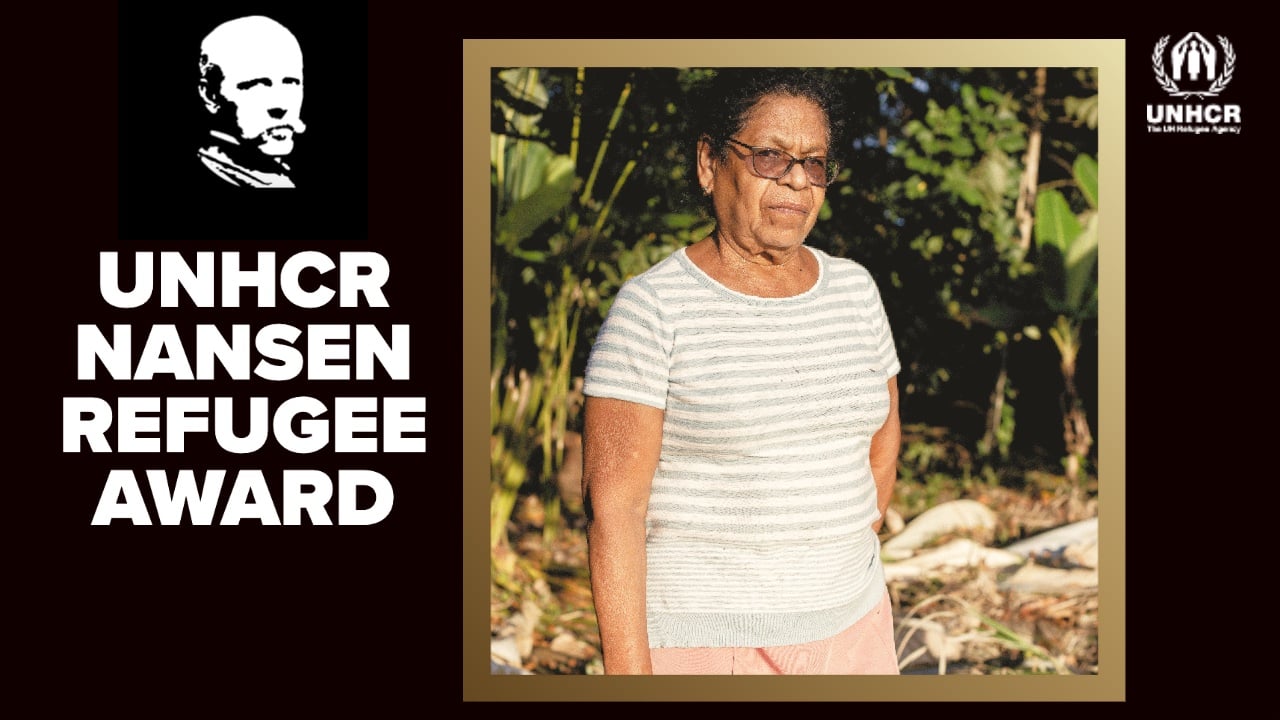Syrian farmers get back to the land in Ireland

Syrian farmers get back to the land in Ireland
Foothills of fragrant olive groves blossomed on Abdul’s farm in Syria, before conflict forced him to flee. Now resettled in Ireland, the 73-year-old farmer is being given the chance to put down new roots and care for an orchard of apple trees.
“Trees are like humans, they need to breathe,” says Abdul, tending to a branch. “So we prune them and let the air blow through, just like with olive trees in Syria.”
Abdul is taking part in a ten-week ‘social farming’ initiative on Ahena Farm in County Mayo, after being resettled to Ireland under a programme run by the Government in partnership with UNHCR, the UN Refugee Agency. The scheme offers resettled refugees a chance to work and exchange skills with local farmers.
His placement is one of several funded by Social Farming Ireland and organized by the South West Mayo Development Company (SWMDC), which supports communities and individuals across the west of Ireland.
“Trees are like humans, they need to breathe."
So far, Abdul and owner Oliver Dixon are reaping the rewards of their skills exchange and finding similiarities.
“Trees are the same everywhere, the only difference is the weather,” says Abdul, chuckling as he looks up at the grey clouds forming over the wet green fields around him.
Margaret Leahy from SWMDC says there is nothing unique about the farms who take part.
“These are ordinary working farms,” she explains. “They are not therapeutic farms or specially designed around one group of people. They are normal, honest to God farms. That’s why they work so well.”
As well as taking care of apple trees, Abdul and fellow Syrian refugee Faisal feed the cattle, cut firewood and tend to the gardens and plants that grow in a polytunnel. In return, the farms learn about how these things are done in other countries.
According to Leahy, many farmers look forward to working with others.
“Farmers find it great as they get introduced to new social circles. It broadens their horizons.”
The skills many refugees bring with them are also invaluable to the Irish farming industry. Amid a shortage, the Irish Farmers Association has estimated that 23,000 workers will be needed over the next decade to meet targets set down by the government.
Agri-food exports have also increased from €7 billion in 2009 to over €11 billion 2016, with that figure expected to almost double in the coming decade.
At Ahena Farm, Oliver is proud to have given Abdul the chance to use and exchange his skills.
“I love to think I can give someone the opportunity to come on to a farm that they may never get,” says the farmer, who runs the farm with his wife Anna. “They get to show us a different culture and we can show them how we do things here. Every farmer should get involved.”
“Positive experiences of refugee integration are often most visible at the local level – at the school gates, in work, on sports pitches or in community halls,” says Enda O’Neill, Head of Office with UNHCR Ireland. “The social farming initiative is a great example of how rural communities across Ireland go to great lengths to reach out to their new neighbours and give them an opportunity to participate in and contribute to community life.”













